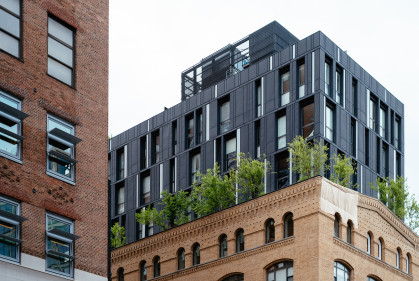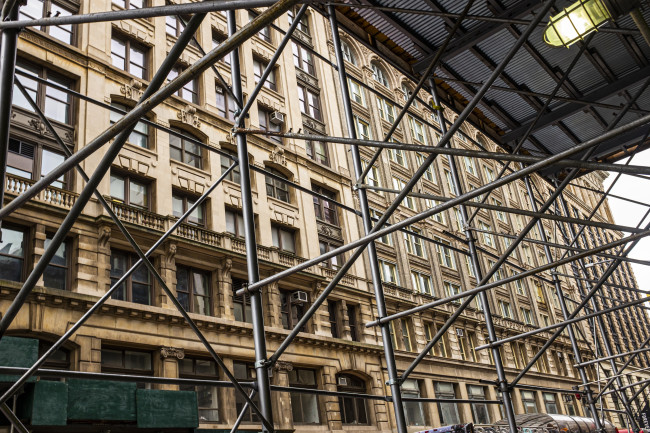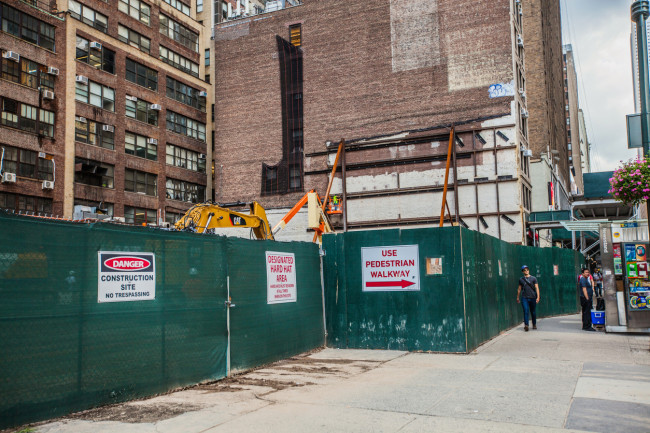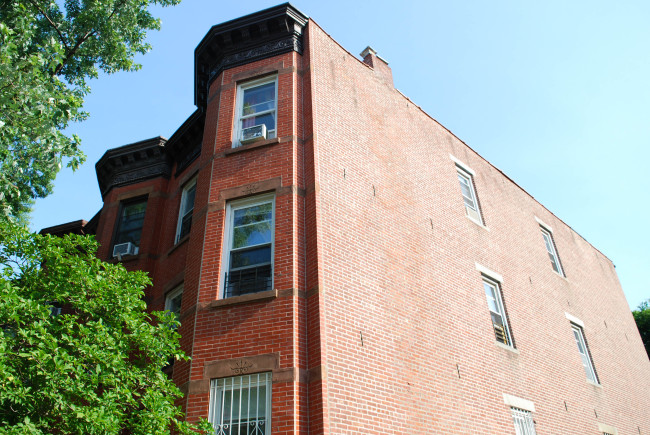Why is a capital plan important, and how do we create one for our building?

As an owner or buyer, you want to see money is being invested in the building—or there could be assessments down the road.
iStock
A capital plan is an evaluation of your building’s assets—the elevator, boiler, sprinkler system, facade, roof—which gives shareholders or unit owners important information about your building’s structural and financial needs.
So why, exactly, do you need one?
“Your co-op or condo building is a significant business with a substantial budget,” says Steve Wagner, partner at the Manhattan law firm Adam Leitman Bailey P.C., who represents co-op and condo owners and is board president of his own 420-unit co-op building. “You need to invest in your building to keep it standing and to make sure it is operating at optimum performance levels and is complying with the law. Buildings are naturally deteriorating and depreciating, so if funds are never invested, it’s equivalent to liquidating your business.”
A capital plan enables your building to invest in its future by evaluating what needs to be done to keep the building going and to ensure funding is available when it’s needed for capital projects like boiler or roof replacements and upgrades to common spaces like the lobby, roof, and gym.
“A capital plan is also the best way to avoid emergency repairs to major building systems and the sudden and unpopular assessments to pay for them,” says Wagner.
Additionally, a capital plan will help your board anticipate “the costs of meeting the seemingly ever-multiplying requirements of the law,” says Wagner. For example, facades of co-op and condo buildings need to be inspected every five years and maintained in accordance with Local Law 11. New energy codes may require large capital expenditures, like converting from oil to gas or upgrading heating equipment.
A thoughtful capital plan can also help keep your building competitive in a buyer’s market: In addition to looking at the operating budget and the reserve fund when reviewing a co-op or condo financial statement for a prospective buyer, Wagner says he also examines “the analysis of cash flows and what money has been invested in capital repairs to the building. If there’s no money being spent on the building, there is likely no capital plan at all. That’s a sign that there may be large capital expenditures in the future. It may also indicate that the building is not being well managed."
How to create a capital plan
“Start by having a conversation with your management company, who is presumably familiar with your building,” says Wagner. Next, an architect or engineer is typically hired to analyze your building’s existing systems, review the conditions of the building in a survey and lay out the upgrades that need to be done immediately as well as anticipate repairs that might be three, five, or 10 years away. Your building super can add insight as he or she is usually most familiar with the systems.
The architect or engineer hired to perform a survey of building conditions will likely prepare a report that describes the condition of the building, estimates costs of upcoming projects and repairs, and when the expenditures can be expected.
“With all these details, a board can move forward and figure out where the funds are going to come from to pay for the improvements. It is very important information especially if you have refinancing coming up,” says Wagner.
How to create a capital reserve fund to pay for your capital plan
Unless your building is lucky enough to have substantial capital reserves on hand already, perhaps through a revenue-generating commercial lease, your capital plan also needs to specify how the projects will be funded.
“There are four main ways a building can raise money for capital projects—assessments, increased maintenance, refinancing and flip taxes on the sale of apartments,” says Wagner, who helps co-op and condo boards navigate the politically charged and legally complex issues surrounding each option. For example, he explains, Wagner helped his own Manhattan co-op fund a $9 million facade project in advance through a combination of refinancing, assessments and an amendment to the proprietary lease revising a low .5 percent flip tax to 2 percent.
The looming $9 million dollar expense was key to getting the flip tax passed.
“It’s normally very hard to get shareholders interested in amending the proprietary lease in any way, which typically requires a favorable vote of two-thirds or three-quarters of the shareholders. And no one wants to pay more when they sell. However, our board explained that a $7 million assessment would drop to $5 million if the flip tax passed,” says Wagner.
It worked: “Everyone voted with their pocketbook and the amendment was passed. Moreover, the flip tax doesn’t end when the projects are funded, so now we are looking at redoing our hallways and lobbies. The money for these projects is coming from the flip taxes, which we are sweeping into a capital reserve fund every time there is a sale,” he says.
When it comes to assessments, your board should coordinate with your building’s lawyer and accountant to make sure it is done properly and isn’t challenged.
Remember also to plan around tax ramifications: “You are bringing in a lot more money than you are spending in any one year, so you need to touch base with your accountant to see how that might be taxed," he notes. Co-ops can often offset any amounts taken in with depreciation. With condos, there’s a section of the tax code that allows the unit owners to pass a resolution allocating certain funds received in an assessment to a particular capital project and avoid taxation as long as the conditions set forward by the Internal Revenue Code are satisfied, explains Wagner.
“All of these things are intertwined and should be coordinated to maintain the infrastructure of your business and keep your home at the highest operating level, which is what most co-ops and condos want,” says Wagner.
New York City real estate attorney Steven Wagner is a founding partner of Adam Leitman Bailey PCwith more than 30 years of experience representing co-ops, condos, as well as individual owners and shareholders. To submit a question for this column, click here. To arrange a free 15-minute telephone consultation, send Steve an email or call 212-584-1973.
You Might Also Like
Sign Up for our Boards & Buildings Newsletter (Coming Soon!)
Thank you for your interest in our newsletter. You have been successfully added to our mailing list and will receive it when it becomes available.





















